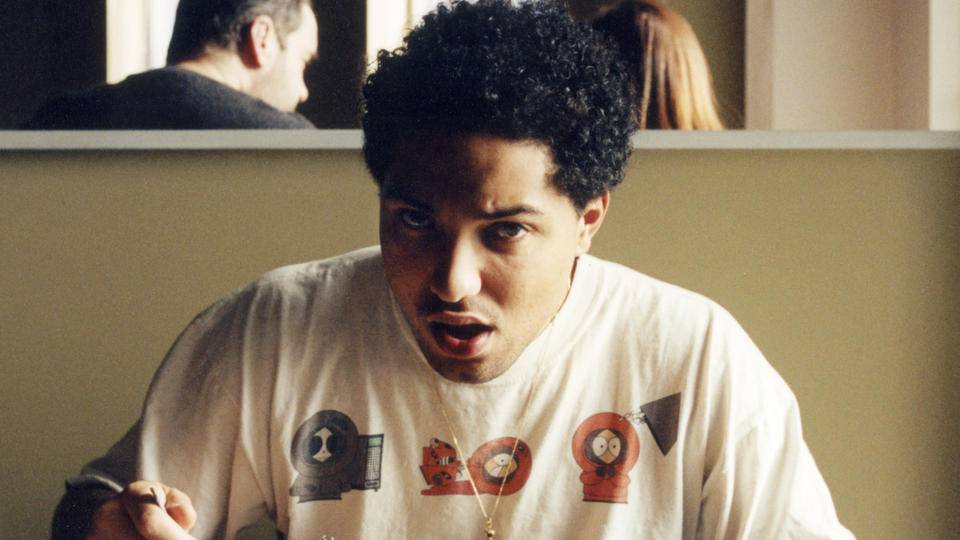What It's Really Like To Have An Addictive Personality Disorder

We’ve all been guilty of saying we’re ‘addicted’ to chocolate or reality TV but having an addictive personality is something that Psychology Today estimates affects 10-15% of the population.
So we asked Addiction and Recovery expert Beth Burgess to explain exactly what it’s like to have one...
What is addictive personality disorder?
"If someone has an addictive personality, it means they are biologically and behaviourally predisposed to developing addictions to things that other people can take or leave if they really want to. A good example of this is alcohol – most people can enjoy moderate drinking, but someone with an addictive personality disorder is likely to develop a problematic relationship with alcohol.
"If someone who just enjoys drinking is prevented from doing so, they may feel like they are missing out, but someone with an addictive personality may feel anxious, irritable, angry and bereft. You will never meet a full-blown alcoholic who isn’t also suffering from addictive personality disorder."
What are the signs that you might have one?
"People with addictive personalities are often sensation-seekers; they are the first people on the rollercoaster and the last to leave the party. Other hallmarks include impulsivity, not being able to foresee the consequences of their actions, a failure to learn from mistakesand a preference for small, short-term rewards over larger long-term ones.
"Addictive personality types often feel like they don’t quite fit into the world, usually react badly to stress or conflict, and have poor coping skills. This can either result in rebellious behaviour or a tendency to self-soothe in unhealthy ways."
What are the hardest things about having one?
"When you put all the traits together, it is easy to see how easily people with addictive personality disorders can fall into dangerous traps, such as becoming addicted to drugs and alcohol. Some people blame addicts for having addictions, because everyone knows the risks of taking drugs, for example.
"But, an impulsive person who seeks an immediate “fix” and can not accurately assess how badly that will turn out is genuinely quite blind to the risk. So, not only do people with addictive personalities fall into these traps more easily, but they then face criticism and stigma for doing so. This is really hard for an addict, especially if they want to recover and ask for help to do so. They feel guilty and ashamed of who they are, and since they can’t deal well with negative emotions, can push them even further into addictive behaviour for comfort."
How can it affect your relationships?
"Someone with addictive traits has to be very careful to prevent themselves from developing serious addictions, and that may include forgoing things that other people can enjoy safely. Perhaps the most overlooked difficulty is the inability to learn from mistakes and foresee negative consequences. People with these limitations may keep repeating harmful patterns, like falling repeatedly into debt or toxic relationships and this can be very hard for people who care about them.
"Not foreseeing the consequences of their single-mindedness, can result in an addict suffering badly from burn-out or neglect or damage important relationships in the process. Every day-to-day decision an addictive personality type makes carries a risk of serious long-term flaws because of their blinkeredness. Being in a relationship with an addictive person can be frustrating on both sides, because you’re essentially looking at the world through different lenses. Addicts often prioritise their addiction over their relationships, which can lead to friction and, ultimately, break-down."
What can you be addicted to?
"People who have addictive personalities can get addicted to anything which gives them an inflated sense of reward. When people do something that is rewarding, like eating, exercising, socialising or helping others, the 'reward chemical'dopamine is released into the brain. Addictive personalities often overdo these things and pursue them compulsively.
"Certain behaviours and substances produce an artificially high flood of dopamine, which someone with an addictive personality may find hard to resist. These include gambling, watching pornand consuming alcohol, caffeine, sugar and drugs. But addictive personality types can become addicted to anything that seems to serve an essential need, like self-soothing, even if it is unhealthy. So, eating disorders and self-harm are also things that addictive personality types can be drawn to."
Is it something you're born with or something that can be triggered?
"Studies have shown that the essential traits of an addictive personality are almost definitely present from birth. However, not everyone with this personality will develop dangerous addictions. Research shows that the more adverse events a person with addictive traits endures in childhood, the more likely they are to become addicted to alcohol or drugs. However, a childhood filled with consistency, love and care can protect against very harmful addictive behaviours.
"Addictive personality types who grow up with a strong sense of self-esteem may indulge in too much coffee or cake, but they are less likely to really harm themselves with their addictive urges."
Can it be cured?
"While you can’t 'cure'an addictive personality, you can learn to manage it. Developing healthy ways to deal with stress can really help, as can identifying patterns of mistakes. Practising 'Mindfulness'is great for both of these things, as it is both relaxing and can also help you become more self-aware. If you’re already engaged in dangerous addictions, seeing a therapist can resolve trauma caused in childhood, so that you can recover more easily. A therapist can also help you develop new effective behaviours and ways of thinking to replace old, unhelpful ones."
How can I talk to a friend with oneabout it?
"The best thing to do if you suspect someone you know has an addictive personality is to encourage them to use their traits as benefits. Support them in pursuing healthy, rewarding, long-term goals. Steer them away from negative influences and hazardous habits. It’s vital to approach the issue sensitively, since confrontation is likely to be counter-productive. The rewarding 'carrot'is much better than the punitive stick when dealing with people with addictive personalities. If you can make them feel good about themselves when they are doing the right thing, you are giving them the 'reward'they so desperately seek."
For help and advice you can find Beth at www.bethburgess.co.uk.
'Have a watch of these celebs gettingreal AF about coping with mental illness...'





